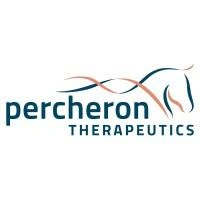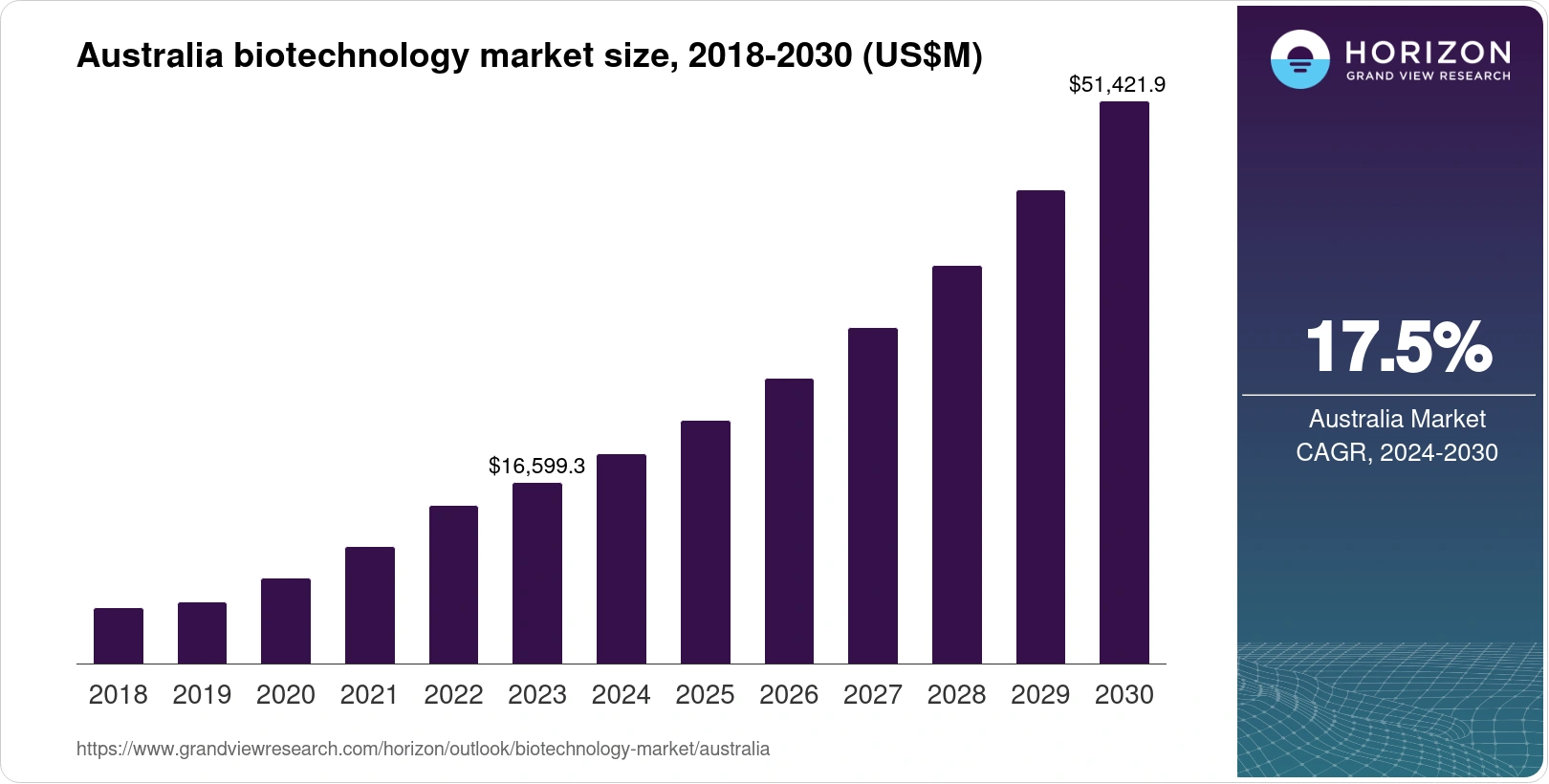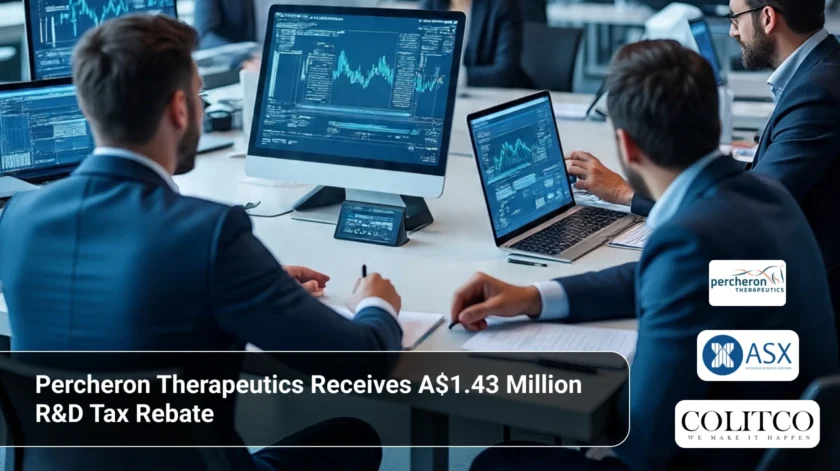What did Percheron secure in 2025?
We are pleased to announce that Percheron Therapeutics has received a $1.43 million R&D Tax Incentive Rebate. The announcement, dated 29 August 2025, is an important development for our company.
The rebate represents approved R&D activities performed in Australia in the last financial year. This represents more than an entry in the balance sheet for the company’s shareholders. It represents funding that does not require the relinquishment of equity and thus preserves the company’s capability to pursue its clinical objectives.
In the current environment of restrained funding, this rebate helps alleviate funding challenges in the near future. The R&D Tax Incentive Rebate offered by Australia is among the most impactful innovation policies of the nation. It has helped many biotech companies, including Percheron, flourish.

Percheron Therapeutics receives tax rebate
Why is this rebate so important now?
The rebate could not have come at a better time. Percheron’s lead program, the clinical development of HMBD-002, needs ongoing funding so that it can hit important funding milestones. The therapy agent HMBD-002 is developed for a particularly severe, incurable genetic condition known as Duchenne Muscular Dystrophy (DMD).
With every clinical research stage there is a new set of expenses. A steady financial grant is needed for patient enrolment, regulatory clearances, and trial oversight.
With this rebate, Percheron maintains momentum without jumping to equity markets. For a biotech operating with a high cost and risk, this offers invaluable space to breathe. Moreover, it reassures investors that Percheron is prudently and strategically managing its capital resources.
How does this impact Australia biotech R&D funding?
Australia’s biotech industry leans on sturdy financing mechanisms, of which the R&D Tax Incentive Rebate is a vital piece. Addressing the concerns of early-stage innovators such as Percheron, the Australian government has committed funds totalling $1.43 million. This action bolsters Australia’s standing as a centre for biotech research. It further calms fears that companies operating locally are shielded from global market risks.
The achievements of Percheron serve as an indicator of the overall condition of the industry. The rebate system incentivises companies to remain and expand their pipelines in Australia. In doing so, it draws local and international investors searching for dependable settings in which to nurture biotechnology innovation.

Australia’s Biotech Marker Forecast
The rebate accelerates HMBD-002 clinical development
HMBD-002 is a reshaping of Percheron’s footprints. It defines the scope of work focusing on the most pressing medical needs as in Duchenne muscular dystrophy.
Its clinical program will receive the releasable funds. With these funds, the clinical sponsors can keep the trial running smoothly.
In rare diseases, momentum is key. A pause can halt work and chase away investors. With Percheron, there is now the freedom to spend for patient enrolment and to achieve valuable trial milestones.
Strategic partnerships or licensing of the drug could be possible should HMBD-002 show positive results. The rebate further enables this by providing a stronger financial base.
Rebate reinforces Australia biotech R&D funding
Australia’s biotech is a story of endurance. The R&D Tax Incentive Rebate makes sure the story continues.
For Percheron, A$1.43 million is not just additional working capital. It marks a government stamp of approval to the company’s line of research.
On a broader scale, it illustrates how good policy turns into real, funded action in the lab and clinic. This kind of support is one reason why investors focus on Australia.
It shields them on the downside while letting them share gains from clinical success. This rebate is another example of why Australia remains attractive for biotech innovation.
Percheron gains strategic freedom with rebate funding
The A$1.43 million rebate enhances Percheron’s ability to effectively manage its growth. It acts as a buffer in managing the unpredictable costs associated with clinical development.
This leads to less desperate capital raising and reduced dilution of existing shareholders. This alleviation in financial pressure enables management to concentrate on the underlying science rather than short-term funding. This is a unique advantage that many global biotechs do not possess.
In addition, the company’s demonstration of good financial management may improve its reputation with potential institutional investors. In biotech, the unpredictability of operations elevates the value of strategic flexibility as much as the capital itself.
Also Read: Percheron Therapeutics Completes Key Toxicology Study for Avicursen Ahead of US FDA Clinical Trials
Investor Outlook and Global Market Impact
The rebate is a reason for investors to be less concerned about the immediate operational issues. The Percheron company now has more resources to work on the HMBD-002 program. In the short term, the A$1.43 million rebate reassures investors about the company’s operational sustainability.
Nonetheless, looking at the global biotech industry, the competition is intense. Percheron is now better placed to compete for such funding. Ultimately, the most impactful factor is the data. Positive results from the clinical trials of the HMBD-002 program have the potential to radically evolve the company’s valuation.
The negative outcomes may counterbalance the positive effects of the rebate. However, this rebate does strengthen Percheron’s standing. It underlines the supportive nature of Australia for innovative biotech industries. For investors who look further ahead, the mix of policy and outcome continues to be appealing.
Conclusion
The A$1.43 million R&D Tax Incentive Rebate awarded to Percheron Therapeutics proves once again how strong Australia’s funding ecosystem is. It provides stability and support for the development of HMBD-002 while reducing reliance on capital markets.
To investors, the rebate conveys a more disciplined management approach and long-term expansion opportunities. Percheron’s future is still heavily dependent on clinical outcomes, but today the company is in a much better position. With government assistance and an advanced product pipeline, the company is well set to achieve future goals.





